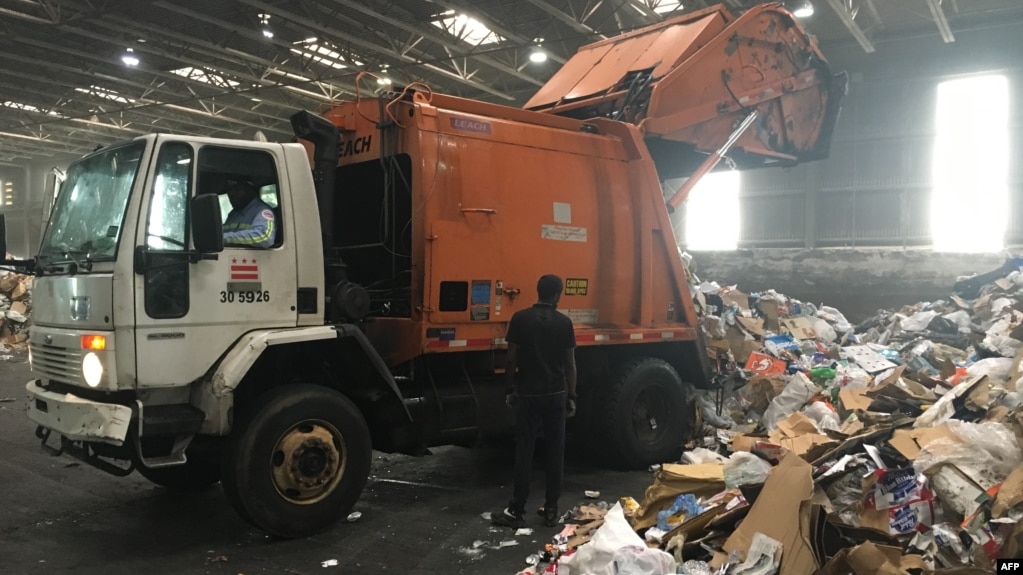”Waste"って”無駄”だけじゃない!!!
VOAラーニングイングリッシュの「Words and Their Stories」
”Waste" "Wasted" "Wasing" 知っているようで知らない”無駄”について
色々あるんですねぇ、って言うお話しです。
さぁ、始めましょう!!!
’人が物を無駄にしなければ、必要なものを手に入れることができる’は良いアドバイス
'Waste Not, Want Not' Is Good Advice
VOAラーニングイングリッシュの「Words and Their Stories」
Waste無駄。 私たちがよく言われることです。
家では、親から食べ物を無駄にしないようにと言われます。
教室では、先生から時間を無駄にしないようにと言われます。
スポーツチームでは、コーチからエネルギーを無駄にしないようにと言われます。
私たちの考えを聞きたくない人たちは、「無駄なことを言うな!」と言います。
それは食べ物、時間、エネルギーや呼吸であろうと - 無駄は何か価値ある物の損失ですよね。無駄は、私たちはあまりにも多くの資源を使用したり、または上手に使用していないことから発生します。
私たちはしばしば議論の中で "Waste "を使用します。誰かに不満がある場合、こう言うことができますね:「私の時間を無駄にしないで!」と。もし誰かに本当に不満があるなら、相手に向かってこう言えます、「あなたって役立たずね!」と。
また、あなたがした何かの結果に対し満足していない場合は、こうも言えます「時間の無駄だったわね」と。
WASTE無駄という言葉の使い方は他にもあります。
ある人が重病を患っていたり、体重が激減していたりすると、"憔悴している "と言えます。また、お酒を飲みすぎて、自分の言動をコントロールできない人は、「酔っ払い」と言えます。
"waste "という言葉の使い方、便利な表現もありますよ。
まず一つ目は: "Haste makes waste " "急いでいると無駄になる"
オンライン辞書Merriam-Websterによると この表現が最初に記録されたのは 1678年だそうです。 完全な格言は以下の通りです。"急いでいると無駄が出てくる、 無駄が欲望を生む、 そして欲望が善良な男とその妻の間に争いを生む。"
"Haste "とは、何かを急いで行うことを意味します。"Haste makes waste "とは、何かをしている間に急いだり、急いだりすると、ミスをする可能性があることを意味しています。そして、ミスを修正するのには、より多くの時間と労力がかかります。だから、もし誰かが「早くしなさい!家のプロジェクトのために木材を切るのに時間がかかっているわよ!」と言ったら、こう言えばいいのです。"急いでいると無駄が出てるわ。私は最初からきちんとやりたいんのよ!」と。
もう一つの一般的な表現は:"Waste not, want not "
これは、人が物を無駄にしなければ、必要なものを手に入れることができるという意味です。これは、質素であることへの返答としてよく言われます。質素な人は、お金を使ったり、物を使うことに気をつけています。彼らは無駄遣いをしないのです。
ここで一つの使い方をご紹介しましょう。私が丁寧に紙を山に入れているとしましょう。その紙の中には文字が書かれているものもありますが、ほとんどの紙は書かれていません。それでも何かに使えそうな気がします。
もし誰かが私を見て、「その紙を捨てればいいじゃない? 紙はたくさんあるんだから。」と言ったら 「Waste not, want not.”」と言えます。シンプルな言い方「この紙を無駄にしたくないのよ。あとで必要になったときのためにとっておくのよ。」と言えばいいのです。
さて、今回の「言葉とその物語」で "無駄 "について学んだことが、"時間の無駄 "にならないことを願っています。
”Waste"使い方まとめ
本文に出てきた意味をまとめました。
be unhappy with: ~に不満がある。納得できない。
waste of space: 役立たずの人。ろくでなし。
waste of one's breath: 無駄なことを言う。無駄な言葉を費やす。
う~む、今日も勉強になりました。
原文 'Waste Not, Want Not' Is Good Advice
 Trucks deliver trash and recycling waste at the District of Columbia’s Fort Totten Transfer Station in Washington, DC, on July 10, 2018. (Photo by Ivan Couronne / AFP
Trucks deliver trash and recycling waste at the District of Columbia’s Fort Totten Transfer Station in Washington, DC, on July 10, 2018. (Photo by Ivan Couronne / AFP
And now, Words and Their Stories, from VOA Learning English.
Waste. It is something we are often told not to do.
Whether it is food, time, energy or breath -- waste is a loss of something valuable. Waste happens because we use too much of a resource or because we do not use it well.
We often use “waste” in arguments. If we are unhappy with someone, we can say: “Don’t waste my time.” If we are really unhappy with someone, we can say to them, “You are a waste of space!”
And if you are not happy with the result of something you have done, you can say, “Well, that was a complete waste of time.”
There are other ways we use the word “waste.”
If someone is very sick or is losing a lot of weight, we can say they are “wasting away.” And if someone has too much alcohol and cannot control their words and actions, we can say they are “wasted.”
So, those are some ways we use the word “waste.” We also find it in some useful expressions.
Here’s the first one: “Haste makes waste.”
The online dictionary Merriam-Webster says this expression was first recorded in 1678. The full saying was: "Haste makes waste, and waste makes want, and want makes strife between the good-man and his wife."
“Haste” means doing something very quickly. “Haste makes waste” means if you hurry and rush while doing something, you could make mistakes. And it takes more time and effort to fix mistakes. So, if someone says, “Hurry up! It’s taking you forever to cut that wood for the house project.” You can simply say: “Haste makes waste. I want to do it right the first time!”
The other common expression is: “Waste not, want not.”
This means that if a person never wastes things, he or she will have what is needed. We often say this as a response to being very frugal. Frugal people are careful about spending money or using things. They are not wasteful.
Here is one way to use it. Let’s say I am carefully putting paper into a pile. Some of the papers have writing on them, but most do not. And I think I can still use it for something.
If someone sees me and says, “Why don’t you just throw that paper away? We have lots of paper.” I can say to them, “Waste not, want not.” It is a simple way to say, “I don’t want to waste this paper. If I need it for something later, I’ll have it.”
Now let’s hope learning about “waste” in this Words and Their Stories was not a “complete waste of your time.”
Words in This Story
coach – n. one who instructs players in the fundamentals of a sport and directs team strategy
strife – n. formal : very angry or violent disagreement between two or more people or groups
rush – v. to move or do something very quickly or in a way that shows you are in a hurry
frugal – adj. careful about spending money or using things when you do not need to : using money or supplies in a very careful way
pile – n. a large number of things that are put one on top of another